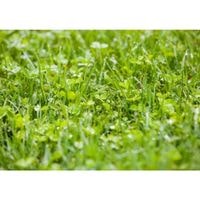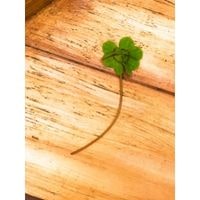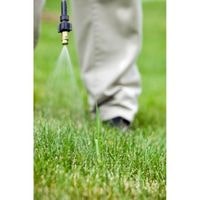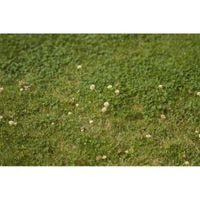What Will Kill Clover But not Grass. Clover, such as white clover, and other Trifolium spp, infest lawns throughout the year, but a regular fertilization program deals with them without sacrificing the grass’ growth.
When you don’t want to sacrifice your lawn in return for having a natural pest-free groundcover, you can also choose to learn to live with clovers.
By using common-sense measures such as mulching, watering more deeply and less often, keeping your lawn healthy and free of weeds like dandelions or crabgrass, that’s normally enough to deal with weeds and keep things looking good.
What Will Kill Clover But not Grass

You can use an organic herbicide called A.D.I.O.S to take care of the stubborn clover in your lawn without hurting the surrounding grass, and it will never end up harming wildlife or polluting our rivers and streams either.
All you need to do is spray it on the weed and it will weaken, then die.
But be careful not to get any on your neighbor’s grass or they won’t be happy. Some other methods are mentioned below.
Nitrogen will take care of it
Lawns need nitrogen in order to be able to fend off weeds like clover. Clover is an invasive weed that usually enters the lawn through animal waste or human trespassers and it has a great capacity for growth if it’s in the right environment, so that means plenty of nitrogen.
Clover can even produce its own nitrogen on its own making it a weed that other grasses can’t compete with during this time since their growth is more difficult when there is less available nitrogen.
The best way to keep your lawn from becoming “clovered” is to use a topical treatment with plenty of nitrogen content and make sure those patches are spot treated at least once every season.
Remove it by hand

For small patches of clover, you can remove the individual clover plants manually.
Gently loosen the soil around the plant with a spade and tug the clover out of the ground, roots and all.
If you leave any roots behind, then just be sure to water those areas a little more thoroughly this will encourage new growth.
Vinegar solution should be sprayed

One can easily make some natural, non-toxic weed killer using ingredients that are easy to obtain.
Take one cup of vinegar, one cup of water, and add a single drop of soap; then shake it well.
Spray this solution over any patches of clover as the mixture will dry out the leaves and kill off the flowering plant completely in no time at all.
However, take care when using this ingredient as too much usage might damage certain types of grass so spray carefully.
Use an organic herbicide
A.D.I.O.S is a selective organic herbicide that does not harm flora around it, especially grass, which is great for preventing your lawn from getting burned up like a wildfire.
The instructions are easy – simply spray the A.D.I.O.S directly onto the clover you want to rid yourself of in your front lawn and let it do its job.
Oxygen and sunlight are deprived of it
To eliminate clover from your lawn, you can cover it with plastic. This will deprive it of the sunlight and oxygen it needs to survive for a few weeks, making it easy for you to pull out later.
Obviously, only try this on large patches of clover; otherwise, surrounding grass will most likely suffer damage in the process.
Use corn gluten to kill it
There are many organic remedies to prevent unwanted clover from growing in your lawn, including corn gluten meal.
One cup of this grass seed herbicide for every ten square feet should keep things under control, as long as you miss a few spots (corn gluten meal is capable of killing even grass).
We recommend spreading five cups of corn gluten meal evenly over the surface of a quarter of your lawn. Then take a rake and make three rows across the seeded area where you want the clover to grow back.
This will help control the spread of your problem clover seeds. Some do not like the way corn gluten meal looks in their yard, so they prefer to use diatomaceous earth instead which may work equally well.
You should smother it
Clover can survive just fine when grown away from other plants, particularly large grasses like the common lawn variety.
Lawn turfgrass will die if you try to smother it with a plastic sheet, but in most cases, it grows back quickly and is little more than a minor inconvenience.
Clover planted near trees or shrubs will also grow even outside of the typical lawn environment as long as growing conditions are good and too much moisture isn’t present because clover does not tolerate waterlogged soils.
What Will Kill Clover But not Grass
Related Guides
